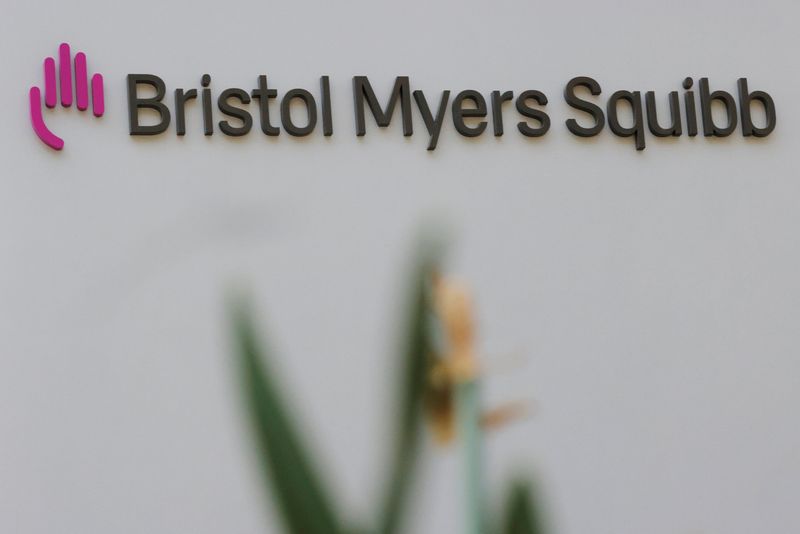By Michael Erman
(Reuters) -Bristol Myers Squibb's new chief executive said on Friday that the company was focused on driving growth toward the end of the decade but would first need to weather a difficult transition period beginning in 2026.
Bristol shares were up about half a percent in early trading.
Chris Boerner took over as CEO in November right after the company pared back expectations for its existing new product portfolio.
The company is expecting its top selling drugs, blood thinner Eliquis and cancer immunotherapy Opdivo, to lose patent protection later this decade. It announced a string of deals intended to restock its drug development pipeline late last year.
"As we think about this decade, we see three distinct periods: a near term growth period, a transition period, and potential for sustainable top-tier growth, which we plan to drive in the back end of the decade," Boerner said on a conference call to discuss the company's fourth-quarter results.
The company announced profit and revenue that beat Wall Street expectations on strength of aging blood cancer drug Revlimid and its new anemia treatment Reblozyl.
"Starting around 2026, our exposure is most acute, and our focus will be on shortening the transition period as much as possible by accelerating our R&D programs and executing on product approvals and launches while maintaining P&L (profit and loss) discipline," he said.
Boerner said the company expects to deliver "top-tier sustainable growth" beginning around 2028.
Analysts, on average, are looking for revenue growth in 2024 and 2025, but expect it to decline in 2026.
Bristol Myers (NYSE:BMY) has already faced pressure from generic competition for Revlimid, once its top-selling drug. Current top seller Eliquis, which it shares with Pfizer (NYSE:PFE), is expected to have revenue curtailed when the U.S. institutes negotiated drug prices for its Medicare program in 2026.
Opdivo could also face biosimilar competition toward the end of the decade.
The company reported revenue of $11.48 billion in the fourth quarter. Analysts on average had expected $11.19 billion, according to LSEG data.
Bristol Myers said it earned $3.5 billion, or $1.70 a share, in the quarter, excluding certain one-time items, topping analysts' expectations by 17 cents a share.

Sales of Revlimid were $1.45 billion and Reblozyl brought in $320 million in the quarter, compared with analyst estimates of $1.27 billion and $280 million, respectively. Sales of Opdivo were $2.39 billion in the quarter, while Eliquis sales were $2.87 billion.
The company said it expects 2024 revenue to increase by single-digit percentages from 2023, when total revenue was $45 billion. It expects its 2024 reported earnings in the range of $7.10 to $7.40 a share, above Wall Street estimates of $7.00 a share.